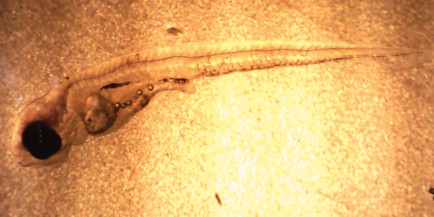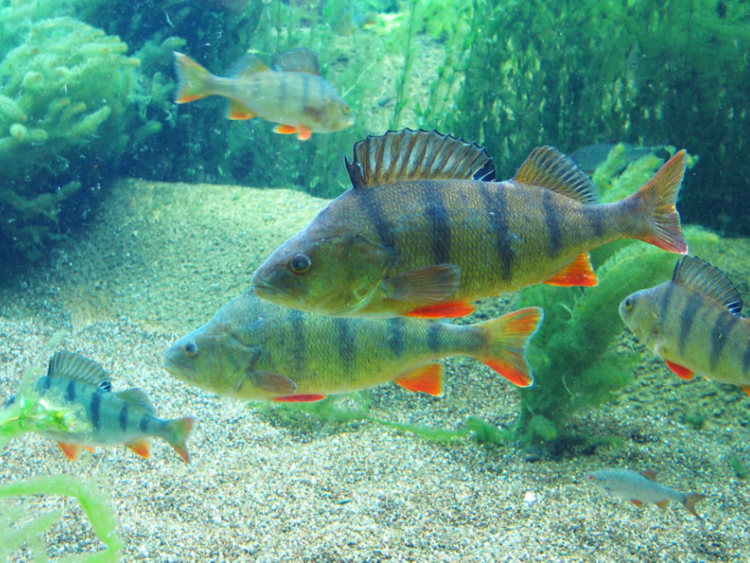
Dubai: The rise of plastics in shallow sea waters does not bode well for marine life along coastal countries such as the United Arab Emirates because microplastics are mistaken for food by small fish still in development, according to a new study published in Science.
Small fish prefer to eat the plastic and gorge themselves on tiny plastic pieces smaller than five millimetres resulting in “changed behaviours and stunted growth which lead to greatly increased mortality rates,” the study stated.
Divers in the UAE confirm that plastics witnessed in recent dives in local waters pose deadly hazards for fish and sea turtles that ingest the pollution believing the debris to be food.
The study by Uppsala University in Sweden revealed that ”larval perch that had access to microplastic particles only ate plastic and ignored their natural food source of free-swimming zooplankton”.
Microplastics are found in high concentrations in shallow coastal areas posing risk for marine creatures. Microbeads, for example, are found in high concentrations in everything from toothpaste, laundry detergent and personal care products and are washed down the drain, ending up in water environments.
In a statement, the university said that for “the first time, scientists have now been able to show that development of fish is threatened by microplastic pollution”.
Marine biologist and lead author of the study Oona Lönnstedt said that fish “reared in different concentrations of microplastic particles have reduced hatching rates and display abnormal behaviours. The microplastic particle levels tested in the current study are similar to what is found in many coastal habitats in Sweden and elsewhere in the world today”.
Ebrahim N. Al Zu’bi, executive director of the Emirates Diving Association, told Gulf News on Tuesday that his organisation has led awareness campaigns among the public and in schools and led underwater clean-ups of UAE coastal areas regularly to remove plastics and garbage on the sea floor.
“We tell people if you throw away a plastic bag, it will end up in the stomach of a land animal or in a fish or a turtle. Broken plastic is also a problem for marine life,” Al Zu’bi said, adding whales and dolphins also eat floating plastics in the water.
Samir Ali, master scuba diver training with Al Boom Diving in Dubai, said from Jumeirah offices in Dubai that plastic debris is readily evident floating in the water and on the seabed in Gulf waters off Fujairah.
“If you dive near the shore, you can find lots of plastic. Every dive, you can fill a mesh net [with plastic items] — it’s a lot,” said Ali, noting that during underwater clean-ups he finds plastic water bottles, aluminium cans, plastic grocery bags and shards of plastic in a multitude of different colours on the bottom.
“I’ve seen it, sometimes the fish think it is food, and they eat it,” Ali said.
In a study wrote and released in February by Jenna Jambeck, an assistant professor of environmental engineering at the University of Georgia, it was estimated that eight million metric tonnes of plastic are entering the world’s oceans annually.
“We calculate that 275 million metric tonnes (MT) of plastic waste were generated in 192 coastal countries in 2010, with 4.8 to 12.7 million MT entering the ocean,” the study stated.
Jambeck said the eight million MT estimate equates to 15 grocery bags filled with plastic for every metre of coastline stretched around the world.
Cutting plastic waste a priority
Dr Thani Bin Ahmad Al Zeyoudi, Minister of Climate Change and Environment, told Gulf News that the ongoing issue of plastic waste is a top priority under current study.
At a recent Federal National Council meeting, it was noted in session that the UAE uses 11 billion plastic bags annually despite ambitious measures by Dubai Municipality and the federal government to slash consumption in the millions.
“The ministry has done so many activities in the last seven years. We came up with several ministerial decrees,” Al Zeyoudi said in an interview. “We’re going to have more attention on the topic. We’re going to activate those decrees.”













